As an evolved 21st-century male, you’re already well acquainted with the work of notable women leaders. You know that the #MeToo movement was the brainchild of Bronx civil rights worker Tarana Burke. You’re unashamedly inspired by the tireless positivity of Pakistani education advocate Malala Yousafzai. You avidly retweet the impassioned words of political leaders like Alexandra Ocasio-Cortez, Maisie Hirono, and Maxine “Claiming Back My Time” Waters. And every night, you whisper a prayer for the success and safety of young Swedish climate activist Greta Thunberg.
But you’re not content to stop there. Patting yourself on the back for a smattering of knowledge about female leadership is so patriarchal. The hallmark of a truly evolved 21st-century male is persistent self-education. That’s why we’ve collected this shortlist of notable female leaders, from history to the present day, who are busting barriers, creating opportunities, and rousing progressive minds to action in every space imaginable. From politics to science, from sports to literature, these powerful female leaders are an inspiration for better ideas, better dialogues and, most importantly, better actions.
Ruby Bridges Hall
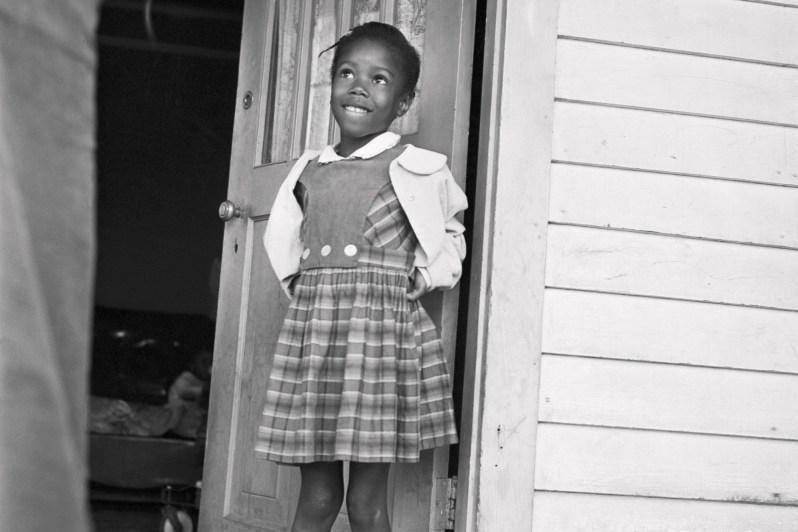
“Racism is a grown-up disease and we must stop using our children to spread it.”
Think back to American history class — remember that photo of the little African-American girl walking up the steps of an all-white elementary school, flanked by armed federal marshals? That little girl, Ruby Bridges, may not have asked to be a civil rights leader, but she has carried the mantle like a champion. Despite the horrendous treatment she received in her first months as William Frantz Elementary’s first black student, she returned to the school as an adult, working as a parent liaison to support underserved families in the surrounding community. When the school suffered damage from Hurricane Katrina, Bridges fought for the school to remain open. Earlier, in 1999, she published a memoir, Through My Eyes, and launched the Ruby Bridges Foundation, which uses educational, art and community service programs to promote tolerance and unity among schoolchildren.
Roxane Gay
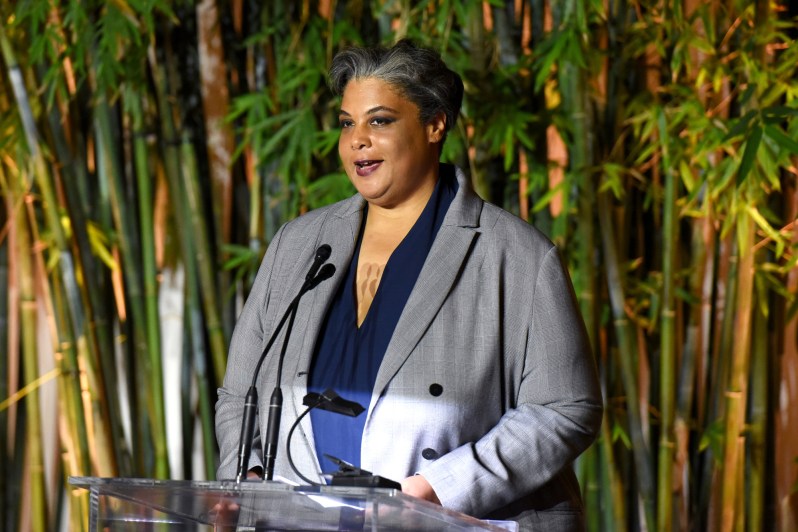
“Feminism is a choice, and if a woman does not want to be a feminist, that is her right, but it is still my responsibility to fight for her rights.”
Roxane Gay’s list of credits could serve as a hall rug: writer, professor, editor, publisher, podcaster, social commentator, we’ll just stop there. In 2014, she published both a critically acclaimed debut novel and a landmark collection of essays, Bad Feminist. The latter put her on the map with its description of, in Gay’s words, “what it’s like to move through the world as a woman,” though Time magazine called it “a manual on how to be human.” Since then, Gay has gone on to publish numerous works of fiction and nonfiction dealing with topics of feminism and gender equality, as well as body image, sexual justice, cultural criticism, and much more. We’re looking forward to her upcoming title How to Be Heard, which promises Gay’s inimitable insight in pursuing work as a creative, an activist, or just being a better person.
Dolores Huerta
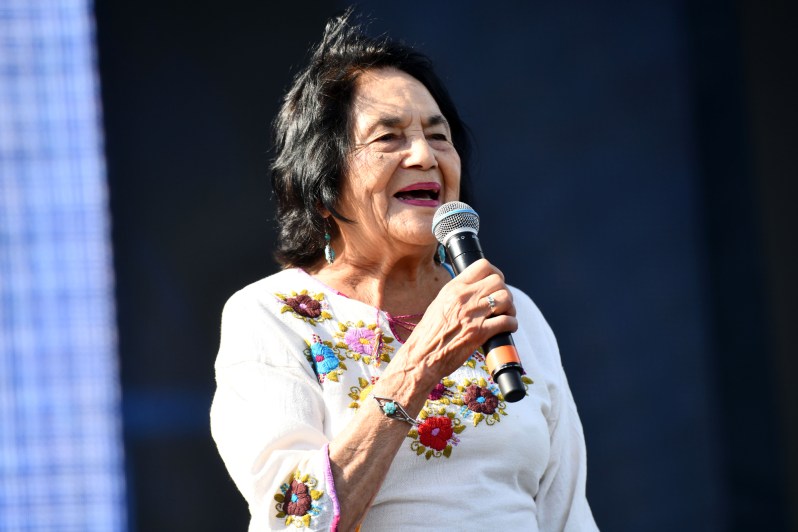
“Every moment is an organizing opportunity, every person a potential activist, every minute a chance to change the world.”
Civil rights and labor activist Dolores Clara Fernández Huerta began her career at the age of 25 in Stockton, California, speaking and advocating for economic justice on behalf of the Latino community and working as a lobbyist in Sacramento. After founding California’s first organized agricultural labor movement in 1960, Huerta’s fame rose sharply when she joined Cesar Chavez in advocating for the rights of farmworkers after the Delano Grape Strike of 1965. Huerta organized and led the consumer boycott against non-union grapes, served as lead negotiator for the agricultural workers’ contract, and merged her existing agricultural organization into the first official farm laborers’ union, the United Farm Workers. Throughout her life, Huerta’s unapologetic assumption of responsibilities that were traditionally reserved for white men garnered no small amount of criticism. (To this day, she is the only woman to sit on the UFW’s board.) Her tireless work continued throughout the 60s and 70s, successfully pushing for legislation that extended basic rights to immigrants and agricultural workers — her work has been awarded with numerous honors including a Presidential Medal of Freedom, as well as 22 arrests and one severe police beating for her participation in nonviolent protest. (Fun fact: She sued the city of San Francisco after the police beating and donated the proceeds to farm workers.) Today she runs a foundation to train leaders in grassroots community organizing, works to encourage minority women to run for office, and at the age of 89, still shows up wherever there’s a nonviolent demonstration for equality and justice.
Winona LaDuke
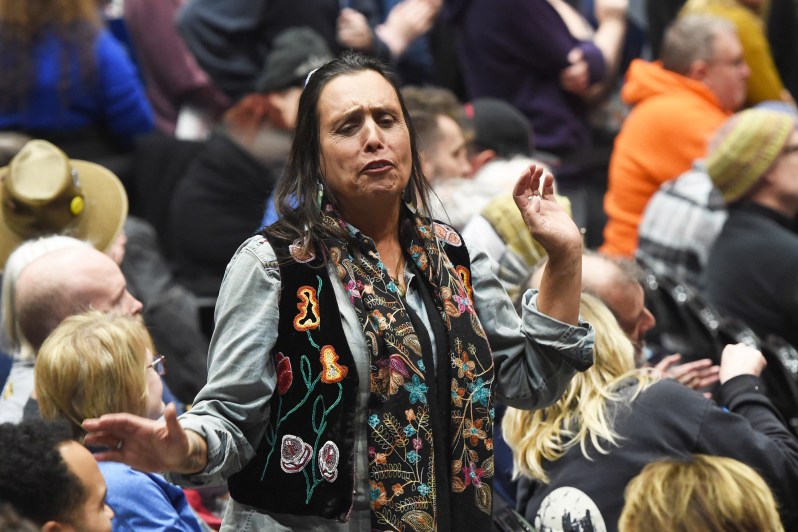
“What we all need to do is find the wellspring that keeps us going, that gives us the strength and patience to keep up this struggle for a long time.”
As a high school student, LaDuke’s first act of resistance was to apply for all the universities her guidance counselor told her she couldn’t get into. As the daughter of an Ojibwe native, she was raised in California and Oregon but moved to Minnesota’s White Earth Reservation after college to work in the local high school. Doing her master’s thesis on the reservation’s subsistence economy led to her getting involved in local issues. Her first accomplishment was publicizing American forced sterilization of Native American women, but her next project, fighting for the restoration of native land soveriegnty, became her life’s work. In 1989, LaDuke founded the White Earth Land Recovery Project to buy back land that had been lost to the Ojibwe through government confiscation, manipulative treaties or pressured sales. Today, the foundation has regained nearly 1,500 acres of tribal land and works to reforest the lands, teach the Ojibwe language, and create economic opportunities that also nourish the land, such as wind-energy farms and industrial hemp cultivation. LaDuke is also the executive director of Honor the Earth, a Native environmental advocacy organization that played an active role in the Dakota Access Pipeline protests.
Ai-Jen Poo
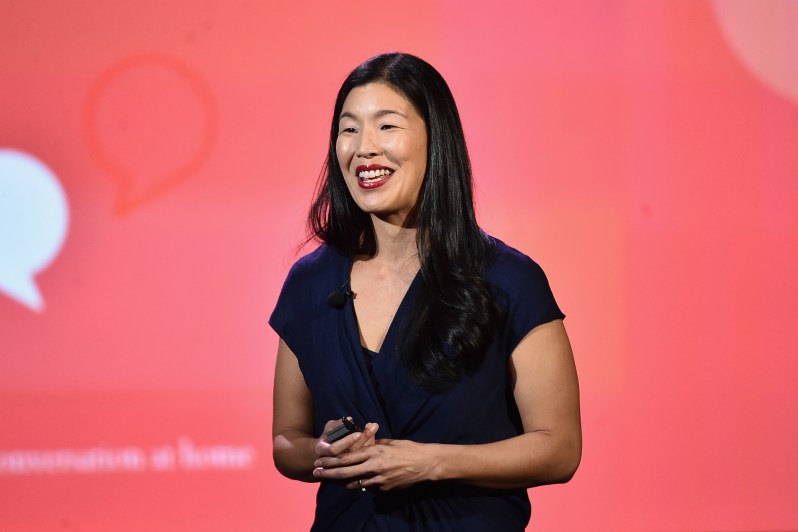
“A fundamental problem with our current health care system is that its measure of success is the delay of death, rather than the quality of life.”
The daughter of a neuroscientist who protested on behalf of Taiwanese democracy, Ai-Jen Poo was more or less born for activist leadership. As a student at Columbia University, she was one of more than 100 students who occupied Low Library to demand more diversity in ethnic studies. Four years later, she founded Domestic Workers United, an organization dedicated to advocating for the workplace rights of caregivers, cleaners, and other domestic professionals. In 2010, the organization pushed the state of New York to pass the Domestic Workers Bill of Rights into law, for the first time guaranteeing basic labor protections such as discrimination protection and overtime pay for domestic workers. Her overachiever credentials include leading a national coalition of advocacy organizations working to transform the existing system of long-term care for the elderly, and cofounding the group Supermajority to train and mobilize women for activism and leadership in preparation for the 2020 election. She’s also rumored to be on a shortlist for Secretary of Labor if the next election goes blue.
Mary Robinson
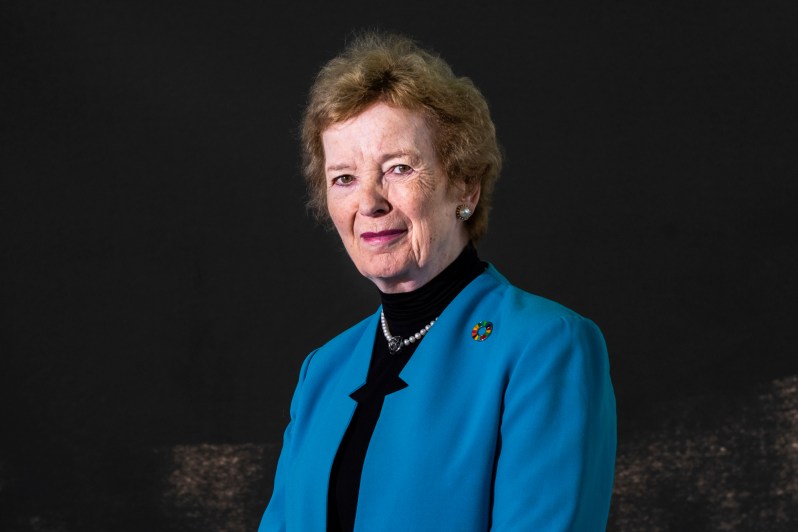
“I was elected by the women of Ireland, who instead of rocking the cradle, rocked the system.”
As Ireland’s first female president, Mary Therese Winifred Robinson played a transformative role in liberalizing a pretty backward political climate. Before her term, the Irish presidency wasn’t exactly goals material, but Robinson used it to play a vital role in restoring sociopolitical relations within Ireland and among its neighbors. The crowning moment of her presidency was signing two bills she’d fought for throughout her political career: One that made contraceptives widely available, and another that decriminalized homosexuality and offered age-appropriate protections for LGBTQ+ people. Even her rival for the position admitted that she was a better president than he could ever have been. Despite her whopping 93% popularity rating, Robinson resigned the presidency two months early to head the United Nations Commission on Human Rights, using her role to focus on mending race relations throughout the world and calling out powerful nations (including Ireland and the U.S.) for their violations of human rights. Today, she serves as chair of the Nelson Mandela-founded global leadership coalition The Elders.
Janelle Monae
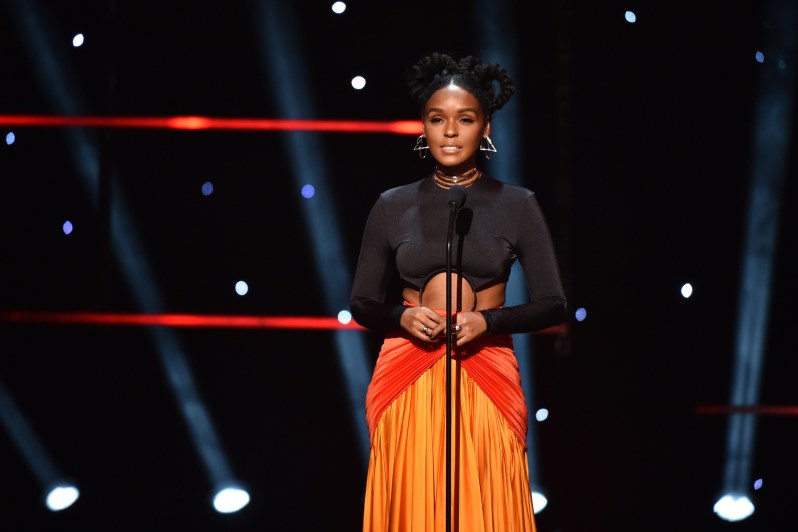
“I come in peace, but I mean business.”
You might know her as an actor, a genre-bending musician, or as a fashion icon, but Janelle Monae is fast rising to prominence as a leader in the movement for gender justice. Driven by a motivation to build communities as well as bridges between them, Monae uses her mainstream platform to advocate for inclusion, acceptance, justice, and civic engagement. How, you ask? Let’s start with her trademark androgynous look and public, vocal support of LGBTQ+ voices, which has opened the door for increased representation and mainstream acceptance of gender nonconformity. Her ads for Cover Girl magazine consistently emphasize female independence. She turned a 2015 performance on the Today show into a soapbox speech about police brutality. She has frequently dedicated her Grammy awards and other professional triumphs to the LGBTQ+ and trans communities. She is a co-chair of When We All Vote, an organization dedicated to changing the race/age gap within voting, and leads an initiative called Fem the Future that empowers and creates opportunities for female-identifying filmmakers and media creatives.
Megan Rapinoe

“This is my charge to everyone: We have to be better. We have to love more and hate less. Listen more and talk less. It is our responsibility to make this world a better place.”
Recently named the world’s top female soccer player by FIFA, as well as Sports Illustrated‘s “Sportsperson of the Year,” Megan Rapinoe is having one hell of a moment. Moreover, she’s using this moment to advocate for social change. From coming out publicly in 2011 to taking a knee during the national anthem in 2016 to refusing a congratulatory meeting with President Trump after her team’s fourth World Cup win, with steadfast LGBTQ+ advocacy along the way, Rapinoe’s sports career has existed side by side with her role as a “walking protest.” According to Rapinoe, activism is second nature for a woman in sports, where gender discrimination is practically a given. Her bold stance in the face of media attention has garnered some criticism but even more acclaim, not to mention a slew of sports marketers. (Activist athletes are so hot right now.) Right now, Rapinoe and her team are suing the U.S. Soccer Federation over unequal working conditions and pay, even as they train for the 2020 Olympics. Somebody buy this woman a beer.
Ingrid Daubechies

“I feel successful being a part of a bigger whole.”
So, who’s your favorite math hero? If no one comes to mind, we suggest Dr. Ingrid Daubechies, the Belgian mathematician and physicist whose work with compacted wavelet forms (i.e., oscillations which can be combined mathematically to analyze and study various signal forms) is directly responsible for making technology efficient and accessible. We’re not going to try and explain the intricacies of Daubechies’ work (that would require a lot more study on our part). Suffice it to say that she transformed the field of mathematics by connecting the dots between abstract theory and real-world signal processing. The mathematical and theoretical tools she developed are the foundation of today’s algorithms for data compression, and power many of the technologies our world relies on. Every time you scan a file, snap a photo, or even scroll through your phone, you’ve got Dr. Daubechies to thank. Today, alongside her continuing work in mathematics, Daubechies is putting her reputation to use to help women overcome obstacles to success in the male-dominated STEM scene.
Rhiana Gunn-Wright
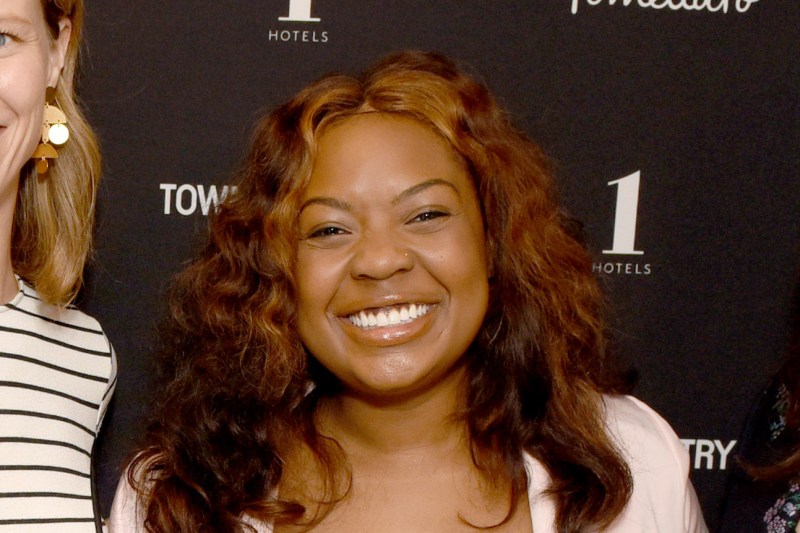
“I never felt like I had much power throughout most of my life … so I’ve always tried to write in terms that people could understand, so that they can access the knowledge.”
As a child growing up in Chicago’s South Side, Rhiana Gunn-Wright experienced firsthand how environmental pollution directly impacts a community’s health, thanks to chronic asthma resulting from her neighborhood’s poor air quality. After stints at Yale and Oxford University, Gunn-Wright landed a dream gig interning under Michelle Obama. Her bold policy agenda for the gubernatorial campaign of Abdul El-Sayed, which included a shift to all-renewable energy by 2030, caught the attention of Alexandria Ocasio-Cortez, who invited Gunn-Wright to join her New Consensus think tank as policy director and a co-author of the Green New Deal. Fueled by her conviction that climate policy is inextricably linked to social justice, Gunn-Wright is committed to ensuring that system-wide changes benefit the black and brown communities most impacted by climate change, and works to educate low-income communities around the importance of their choices and their votes.
Keep reading about our favorite female authors and comedians.


